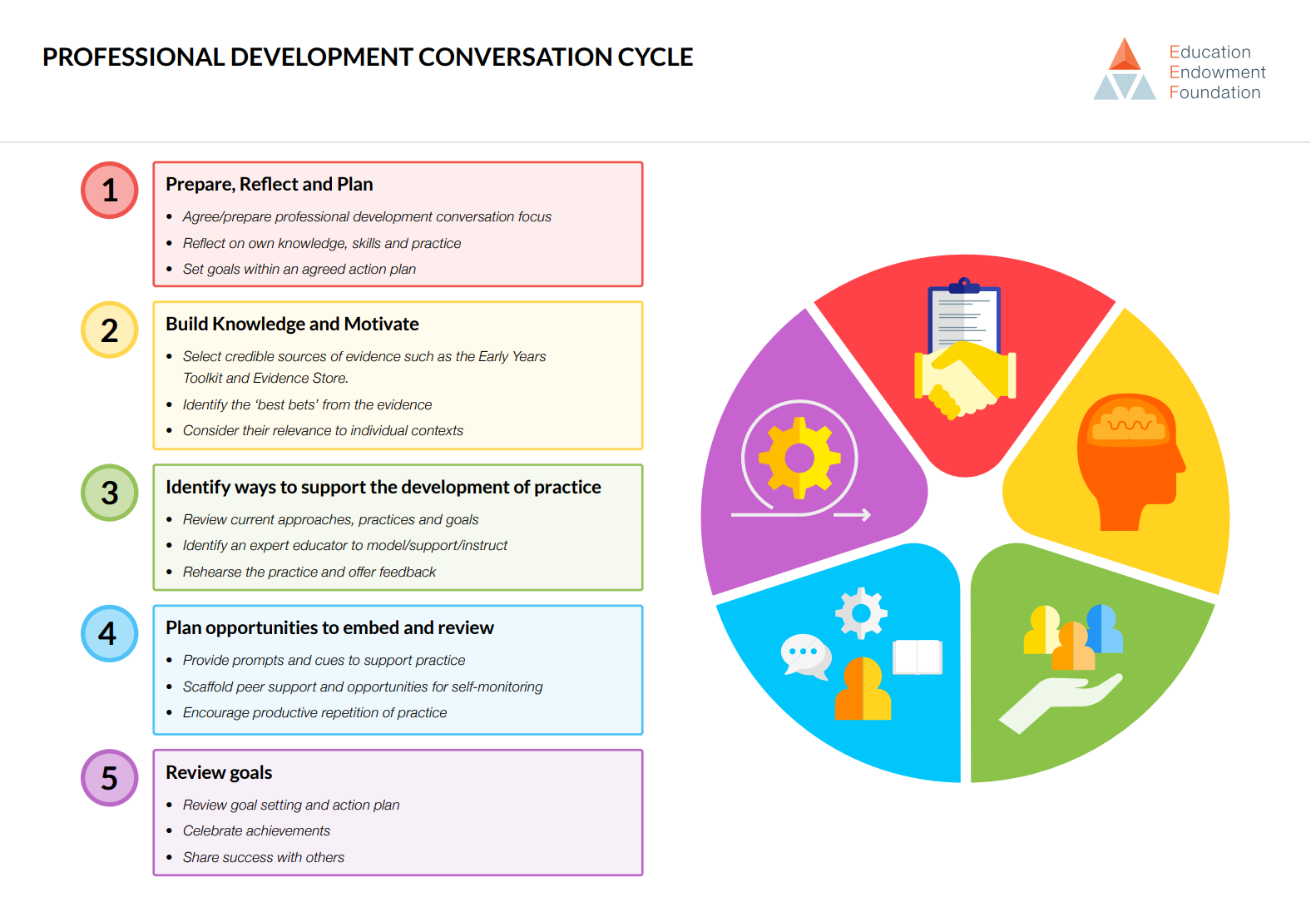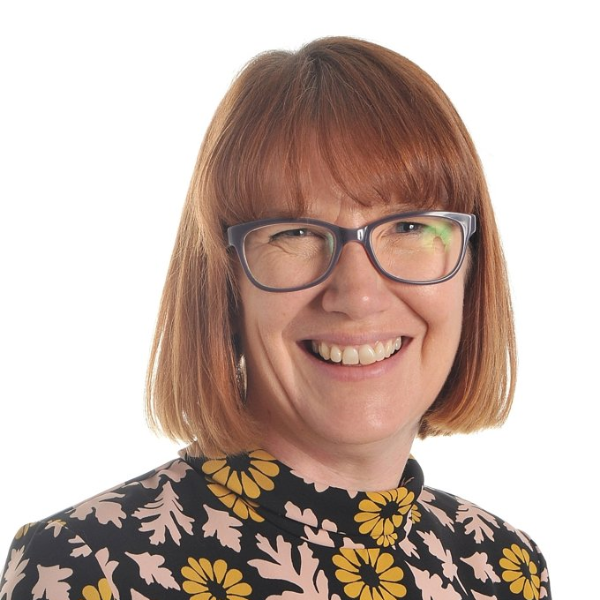Blog
Professional Development for the Early Years Workforce: What are our Best Bets?
“A quality learning experience for children requires a quality workforce. A well-qualified, skilled staff strongly increases the potential of any individual setting to deliver the best possible outcomes for children”
DfE (2021) ‘Statutory Framework for the Early Years Foundation Stage’ (3.21, p.26)
Ensuring a high-quality workforce means having access to high-quality Continuing Professional Development (CPD). Most of us have had the opportunity to engage in a range of CPD opportunities or training – not all of which we would describe as high-quality! Some have been more memorable than others, some have given us new ideas and inspirations, some have provided us with essential knowledge to fulfill the statutory requirements of our role (the less fun stuff) and most, the opportunity to meet like-minded professionals with whom we can share stories and have a moan (despite loving our jobs really!). But how many of these opportunities have led to long-term change in the way we educate and care for our children? How much of this newly acquired knowledge is embedded and remains integral to improving outcomes for our children year after year?
There isn’t a magic formula that ensures the quality and positive impact of all professional development opportunities, but fortunately we now know, through the experiences of ourselves and others, what are likely to be our best bets. Research states that there are a range of factors that are likely to make CPD more effective, instigate change that is sustainable, develop practice (acquiring and retaining knowledge and technique) and ultimately improve outcomes for children and families. These factors include:
- Having a specific objective, knowing what you want to achieve, right from the start.
- Opportunities for active involvement from all participants
- Using evidenced-based principles (things that have already been proven to work)
- A specific focus on practice with planned opportunities to try out what has been learned, with children
- Collective participation (learning with peers who have similar experiences and development needs)
- Longer programmes that tend to be more effective than one-off sessions
- Expert input and ongoing support
- Motivation and inspiration

However, in order to ensure that the first thing on the list, a specific objective, is integral to your thinking when planning CPD opportunities, it is essential to first consider the specific needs of your setting. Professional development or staff training needs to be included as part of your Whole Setting Development Plan. Ideally, the whole team needs to be involved in developing this plan, giving everyone ownership and most importantly an understanding of what you are trying to achieve together.
Evidence states that the ‘less is more’ approach works best when deciding on your focus for whole setting development, as well as the development of your staff team. Whilst it may be tempting to grab hold of every opportunity, especially now when there is so much on offer, too much input from a range of sources can be overwhelming and confusing and knowledge is less likely to stick. Focus on just a few elements for improvement. Based on the needs of the children and families, create your Whole Setting Plan, evaluate the professional development needs of the staff team, and only then carefully select opportunities that meet those needs best. There needs to be a plan in place for longer term development, based on those few key objectives, matched to professional development needs, rather than staff just picking something that they fancy!
Ideally, more than one person from a setting (or similar setting in the case of childminders) should participate in professional development. This is because evidence states that together they are far more likely to gain a better understanding, learn more, and successfully share their learning with others. This could enable the whole team to benefit and ultimately there will be a much higher likelihood of the change in practice you were hoping for to occur. While the thought of releasing one person, let alone two, in these massively challenging times (we are all struggling with staffing and recruitment) may seem impossible, forward planning usually helps and the long-term benefits will be worth it and much more likely to have the desired impact. Success in embedding change takes time! Plan for learning to be ongoing in smaller chunks, interspersed with planned opportunities to put theory, new skills and techniques into practice with your children in your setting. Expect there to be some barriers and work together to overcome them rather than getting disheartened. Leaders will need to enable and empower staff, providing support where necessary and encouragement to carry on, reminding the whole team of the importance of what you are trying to achieve together.
The Education Endowment Foundation have put together a guide to ‘Effective Professional Development in the Early Years’, which includes all the evidence-based ‘mechanisms’ that ideally need to be included in effective CPD. It is specifically for the Early Years sector and this first edition has been put together to support the DfE’s Covid-19 recovery initiative: Stronger Practice Hubs. It is laid out in an accessible and usable way so it’s definitely worth a look if you’re leading on or interested in high quality CPD opportunities for Early Years professionals!
If the idea of putting together your own high-quality professional development opportunities seems daunting or a little out of reach, this is where we come in! St Edmund’s Early Years Stronger Practice Hub has designed a range of Specialist Learning Networks which are offering opportunities to Early Years Professionals to come together to share knowledge and effective practice. Based on what you told us you needed help with in our ‘Development Needs Analysis’, we’ve established five networks:
- SEND
- Social Communication and Regulation
- Outdoor Play and Learning
- Leaders and Emerging Leaders
- Childminding
The Specialist Learning Networks provide the opportunity to meet other professionals with a shared interest in a specific area of learning, build professional relationships and participate in professional discussions, gain access to valuable resources, share ideas, and learn about the latest trends and CPD opportunities. They are structured around the needs and interests of participants, and are delivered by expert practitioners in a variety of ways at varied times, including face to face and virtual sessions, inspiring guest speakers, and focused discussions. When you join a Specialist Learning Network, you will be expected to engage over a number of sessions and months and be motivated to put what you have learned into practice in your setting, share your successes and challenges, and make a real difference to your children. Please note that if you are a childminder you can join any of these networks, you are not limited just to the Childminding Network.
“All practitioners need to improve not because they are not good enough, but because they can be even better” - Dylan Wiliam
 |
Sian Hudson Sian has worked in the field of Early Childhood Education for over 20 years and during that time has moved from classroom assistant to Executive Headteacher of two Bradford Nursery Schools. She leads an amazing team of Early Years educators who work in genuine partnership with families to ensure children get the very best early education and care - the start in life that ALL children deserve. |
